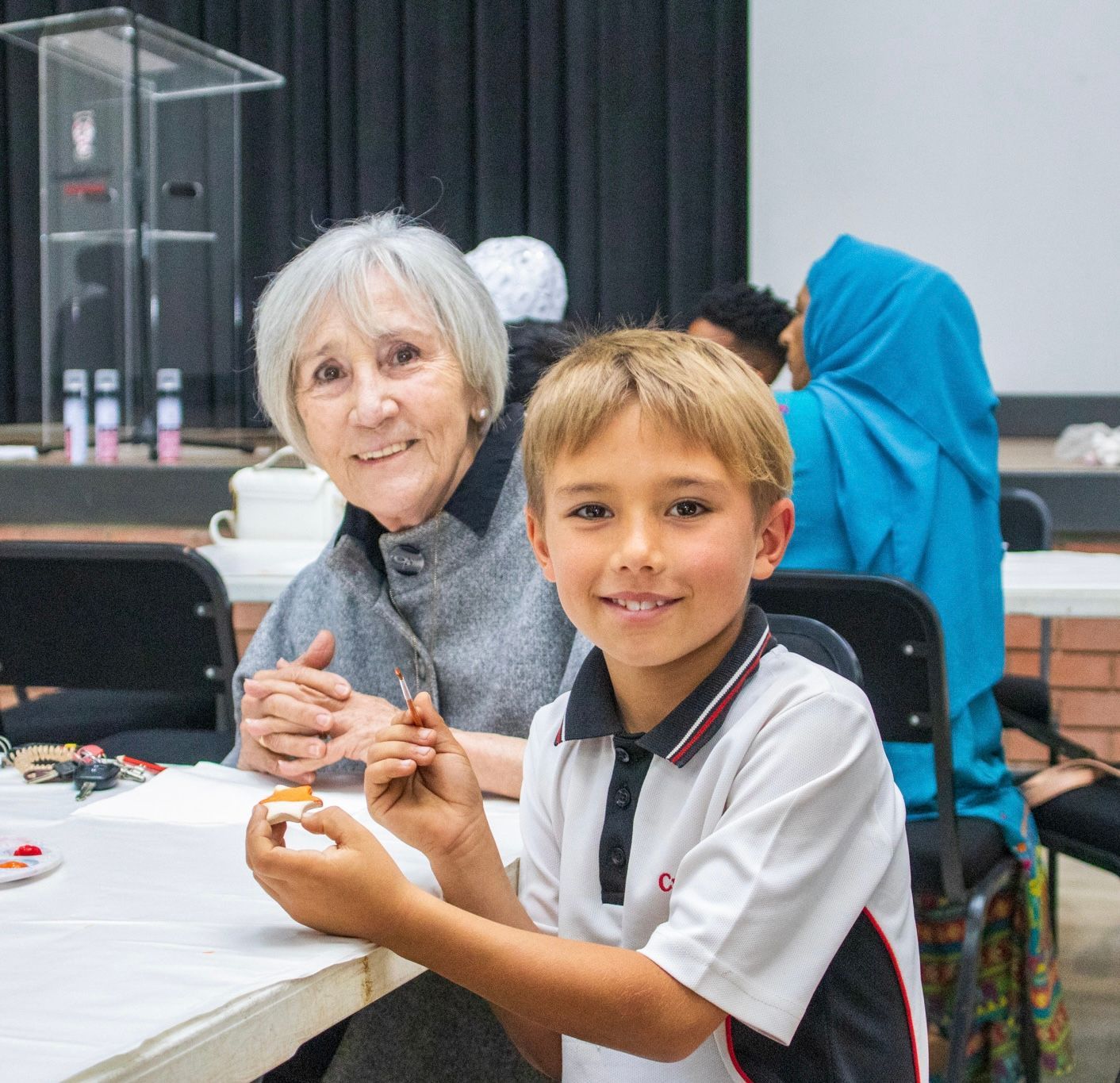North Coast August 2024
August 30, 2024
Celebrating Thandolwethu Mthembu
Thandolwethu Mthembu, a Grade 12 boarding student at Crawford International North Coast, has achieved full colours in Academics, Culture, and Service, earning her the prestigious Honours Blazer.
Thandolwethu’s journey at Crawford began in Grade 8, inspired to pursue the Honours Blazer after witnessing a former matriculant receive one in 2020. Her impressive results extend beyond academics, with notable achievements in sports and culture. She has earned Senior Half Colours for Netball and the Dale Carnegie ‘Highest Achievement’ Award for 2023. Active in the Student Representative Council since Grade 8, she also contributed significantly to establishing the Boarding Student Representative Council.
Academically, Thandolwethu has maintained an A aggregate, consistently ranking in the Top 10 of her grade. Her passion for singing is evident through her participation in multiple competitions, including winning a gold medal at the eThekwini Eisteddfod. She is currently at a Grade 6 level in singing under Trinity College London.
Thandolwethu shares, “I create a very strict schedule, personalised for each new day, where I plan every single activity. This allows me to fill each day with all the necessary tasks that make my life fulfilling. I am an avid planner and take great pride in my daily and weekly plans. Vision boards and reminders on my devices help me stay focused on my goals.”
Congratulations, Thandolwethu! We are proud of your achievements and dedication.
Celebrating Neha Moodley
Neha Moodley, a Grade 12 student at Crawford International North Coast, has achieved the prestigious Honours Blazer, recognising her outstanding accomplishments in Academics, Culture, and Service. Neha’s journey began with an academic scholarship in Grade 8, and her dedication has earned her this esteemed award.
Neha excels academically and in extracurricular activities. She has been actively involved in soccer, volleyball, chess, and has shown leadership as a member of the Student Representative Council and Student Leadership Body.
Outside school, Neha’s passion for dance is evident. She has performed in notable productions and recently earned a silver medal with double distinction for ballet. She is also a talented musician and writer, having won a gold medal in the Social Justice Stories competition and contributing to various service projects.
Neha advises younger students to follow their passions and maintain a healthy balance between academics and personal interests.
“Your mental health is what's going to stay with you after high school, so treat yourself kindly. Put effort into doing well in school, but don't neglect other things that make you happy.”
Congratulations, Neha! We are proud of your achievements and dedication.
Nothing Like a Grandparent’s Love
Crawford International North Coast honoured Grandparent’s Day with a warm and joyful event for Pre-Primary and Preparatory students. The morning included delicious food, engaging activities, and plenty of hugs, celebrating the special bond between grandparents and their grandchildren.
Celebrating Leadership in Women at Crawford International North Coast
We are honoured to highlight four exceptional female leaders from Crawford International North Coast featured in the latest GetIt Ballito, Umdloti, and Umhlanga Women’s Month edition. Each leader contributes uniquely to our school’s vision of nurturing future leaders. In case you missed the publication, here’s what they had to say about empowering other women:
Mrs Smit - Campus Head
My identity as a woman is integral, not incidental to my role as a leader. It shapes every decision and interaction, enriching my approach to leadership and creating a school culture that values diversity, embraces challenges, and nurtures future leaders. My gender identity does not confine me; rather, it expands the possibilities of how I lead and connect our entire school community, here at our world-class school, right here on the North Coast.
I empower women by being a visible role model, mentor and advocate. I amplify women’s voices, ensure equitable opportunities, and cultivate an environment where women feel valued. By sharing my journey, supporting their growth and challenging barriers, I strive to inspire women to lead authentically and unapologetically.
Mrs Kistan - College Principal
As Crawford International North Coast College Principal, I have been able to develop and hone my leadership style, being an authentic leader who leads with integrity, grit and passion. Being in the profession for 28 years has made it evident that collaboration with emotional intelligence is key, caring for and mentoring those in our academic community.
At Crawford International North Coast College, I promote an inclusive and respectful environment for all. I strive to advocate for policies and practices that promote gender equity, diversity, and inclusion in the workplace. I endeavour to ensure that my presence in a leadership role inspires and empowers others, to pursue their aspirations as well.
Mrs Curtis - Pre-Primary Principal
Being a woman means empathy, nurturing, and resilience to me. As the Pre-Primary Principal at Crawford International North Coast, it influences my approach to education by fostering inclusive environments, empowering young minds, and ensuring every child feels valued and supported in their learning journey.
In the workplace I empower other women by mentoring, advocating for professional growth opportunities, and fostering a supportive work culture. I believe in celebrating achievements, promoting leadership skills, and creating pathways for success, ensuring every person in our team feels empowered and valued.
Mrs de Brito - Head of Boarding
To me, being a woman represents strength, resilience, and grace. It means being a source of love and nurturing cure, while also being determined, and unapologetically oneself. As Head of Boarding with over 100 students in my care at Crawford International North Coast, my role requires me to lead with empathy, compassion, and strength, creating a nurturing ‘home from home’ environment for all our students, some as young as Grade 5. I work hard to role-model confidence, determination and kindness, fostering a supportive culture, academic excellence and inclusivity.
I am passionate about empowering women to reach their full potential. I mentor, guide, and encourage our girls to take on new challenges and pursue their dreams. I help our students build confidence, resilience, and strength. Happy Women’s Month to all the wonderful women out there!





















